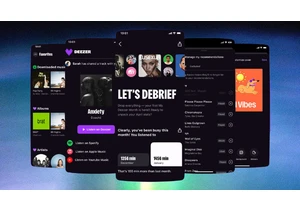Last week, the world was shaken by news of a worrisome new coronavirus variant called Omicron. By Monday, President Joe Biden assured Americans, “This variant is a cause for concern, not a cause for panic.” Public health experts say it will take weeks to get the full picture of how this virus mutation is affecting human health, but in the meantime there are steps we can take to mitigate our risk of infection. Since the World Health Organization labeled the Omicron a variant of concern, we have learned a few things. It has 50 mutations—far more than any other variant—according to The New York Times. Importantly, 30 of those mutations are in the spike protein, the part of the virus that gives it the ability to latch on to human cells. So far, Omicron has been identified in 19 countries, according to CNN. What we don’t know is whether the virus is more transmissible, if it will make people more sick, or if the mutations make it resistant to current vaccines (though Moderna CEO Stephane Bancel says he thinks the company’s vaccine may be less effective against Omicron). While there are reasons to be concerned, public health experts remind us there are simple precautions we can take to handle this new variant of COVID-19. “Wear masks in indoor public places, make sure you’re vaccinated, get boosted if you haven’t been, and then take a deep breath—because I promise we’ll know more in a couple of weeks,” says Megan Ranney, emergency room doctor and director of the Brown-Lifespan Center for Digital Health in Rhode Island. Even with a new variant potentially on the rise, Americans have tools for dealing with COVID-19 that we didn’t have last year. Masks and vaccines have been shown to curb transmission. Soon, the Food and Drug Administration may approve drugs from Merck and Pfizer that are capable of treating hospitalized patients with COVID-19, giving the U.S. another tool to combat the virus. On Tuesday, an FDA advisory committee voted in favor of the FDA approving Merck’s antiviral, molnupiravir, though there are several unanswered questions, including whether the drug could spur more virulent forms of COVID-19. Pfizer has a similar drug pending FDA review. Multiple lines of defense While there is a risk that current vaccines may be less effective against Omicron than previous variants, the antibodies that result from inoculation are still likely to offer some protection, according to Alessandro Sette, a professor of immunology at the La Jolla Institute of Immunology. “It’s reasonable to assume it’s going to be neutralizable to some degree, with a decrease,” he says. But he adds that antibodies are not the only immune system defense; we also have to consider T cell response. Antibodies prevent COVID-19 from infecting a person, whereas T cells provide damage control. If data shows T cell response remains strong—a big if, Sette acknowledges—that means that while vaccinated people may become infected, they could have a less severe manifestation of the disease. The most important thing, he says, is that people get vaccinated: “Reducing the viral circulation is the best thing that we can do.” Mass global vaccination is necessary in order to prevent the emergence of new variants and to slow the spread of existing variants of concern. “Over time, uncontained spread and accelerated evolution in immunocompromised hosts could drive enough mutation to reduce the efficacy of current vaccines considerably, or even entirely,” wrote the Scripps Research Institute’s Dennis R. Burton and Eric Topol in the scientific journal Nature in February. We’ve been lucky it’s been six, seven months since we had our last bad variant.”Dr. Megan Ranney, Brown-Lifespan Center for Digital HealthNot quite 60% of all U.S. citizens have been vaccinated and only 20% have been boosted, according to data from the Centers for Disease Control and Prevention. Rates vary considerably across regions: For example, 50% of Idaho residents have received one dose of a vaccine, while 84% of Puerto Ricans have. Globally, the difference is even more stark. Data from the World Health Organization shows that less than 1% of the population in the Democratic Republic of Congo has received even a single dose of vaccine. “This [Omicron] variant reemphasizes the point that, for better or worse, what happens in one [region] instantly spreads to what happens to others when it comes to infectious disease,” Ranney says. So far governments have focused on travel restrictions to ease spread, which many public health experts believe is too little too late (South African President Cyril Ramaphosa has also said the bans effectively punish the country for sequencing the virus and sharing its data). The U.S. is currently restricting travel from eight African countries. Meanwhile, Ranney’s hope is that Omicron will help drive vaccination globally. “We’ve been lucky it’s been six, seven months since we had our last bad variant,” she says. We could see more of them if more people aren’t vaccinated. Ranney says if Omicron turns out to be more infectious and more severe than previous variants of COVID-19, it will be incumbent on the government to ramp up testing, masking, vaccinating, and providing extra support for health systems. Until we know more, she says, we should get vaccinated and wear masks in public spaces but otherwise go about our lives. “I get a lot of questions from folks, including my own family, about whether we should start thinking about canceling the holidays, and what I’m telling everyone is no, not yet. Give it a week or two,” Ranney says. “We’re going to know so much more in two weeks.”
Chcete-li přidat komentář, přihlaste se
Ostatní příspěvky v této skupině

If real Easter eggs aren’t your thing this weekend, you may find hunting for digital ones more enjoyable. And there are some cool ones to find at your fingertips, provided you have an iPhone or Ma

With music streaming, users have gotten used to being at the mercy of algorithms. But French music streamer Deezer is making it easier for its subscribers to make the algorithm work for them.

Trying to get from point A to point B? If only it were that simple! With any manner of travel these days, you’ve got options: planes, trains, buses, ferries, and beyond. And finding the best

When Twitter cofounder and Medium founder Evan “Ev” Williams was planning his 50th birthday party, he didn’t know who to invite. Having spent more of his life building and scaling tech

If you thought you’d heard the last of the viral “Apple” dance, think again. The TikToker behind it is now suing Roblox over its unauthorized use.
Last year, during the height of Brat su

A Wall Street Journal report this week gave an extensive look into how Elon Musk, the

Netflix fared better than analysts anticipated during the first thr
